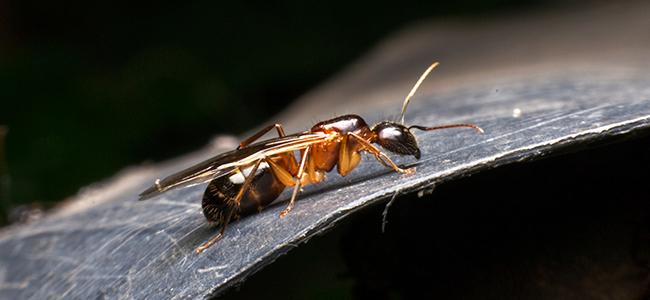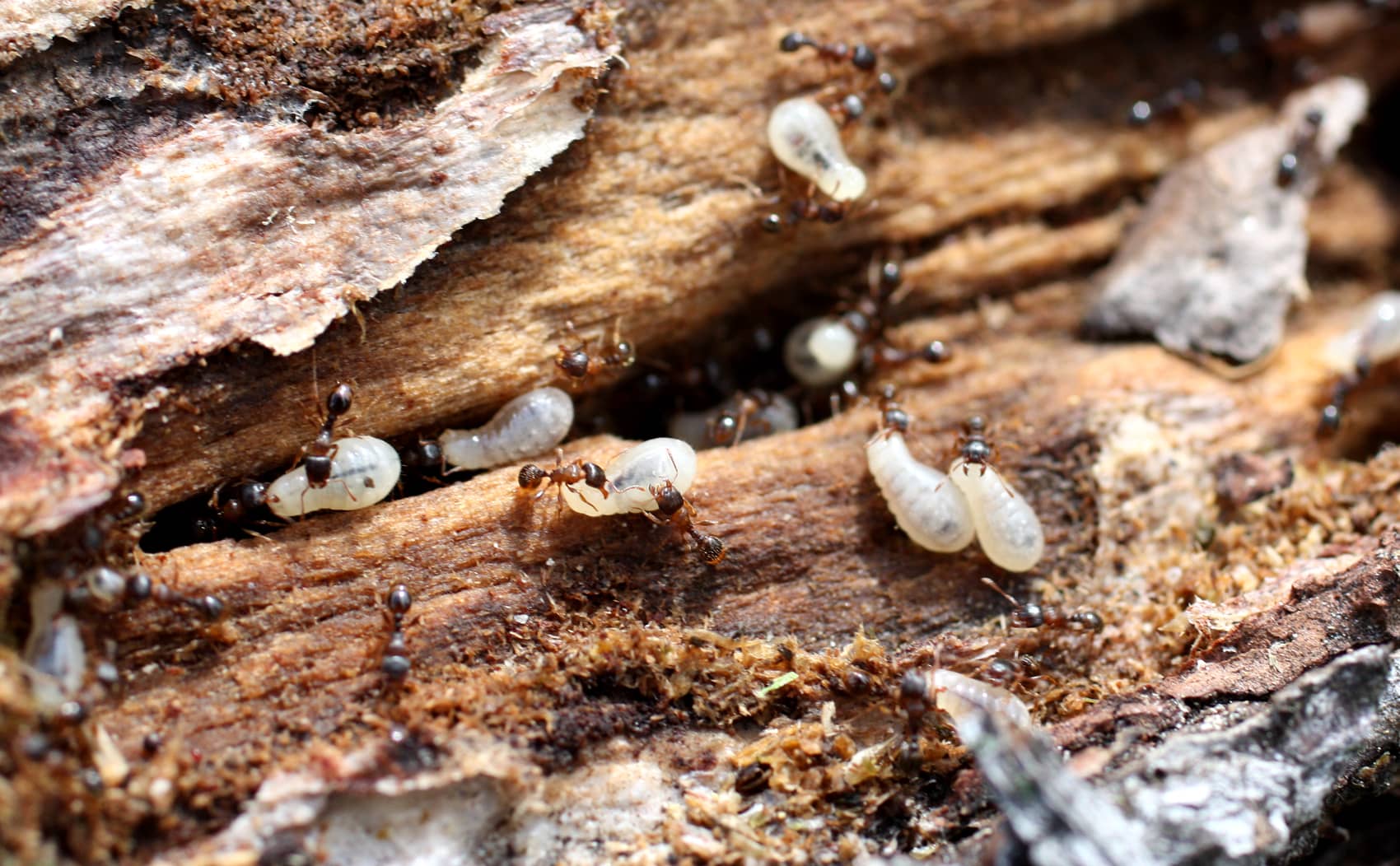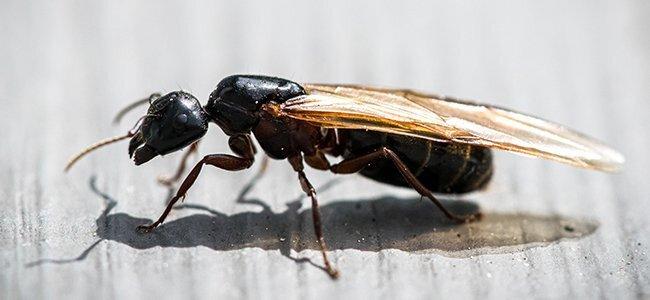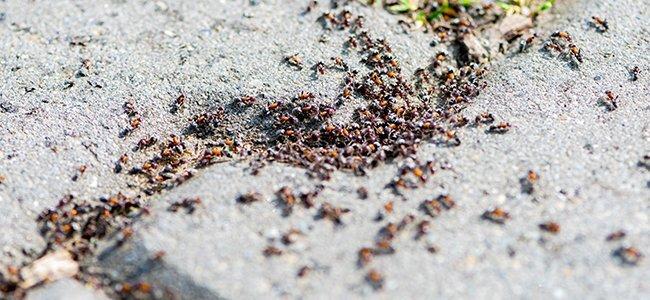
Washington D.C.'s Complete Guide To Odorous House Ant Control
09/03/2021
If ants are making their way around your Washington D.C. home, they can bring a variety of problems to you and your family. However, if it’s ...
READ MORE >
Got ants?
It may help to know that you are not alone. Ants are the most common pest that homeowners across the DMV seek our help to control. Whether these ants are in your kitchen, sun room or bedroom, rest assured that there are great products (safer ones, too) that can be used to get rid of them.
Understanding common household ants
Treating for ants isn’t exactly an easy task…for anyone. It’s important to know that the army of marching ants that you see on your kitchen counters may only represent about one eighth, or less, of the total colony. These gals are worker ants--sterile females sent out from the nest to seek food and moisture to help support the development and growth of the colony. The colony may be underground, such as under patio pavers, flagstone, and mulch beds and contains as many as 40,000 individuals. Beyond this, you can have several colonies (even several species) of ants on your property. Yuk! Get me out of here.

So I’ve got ants inside, now what?
First, we’ve got to investigate. Species identification is key to the success of any ant control program--we need to eyeball, smash and watch how the ants groove. Not all ants are treated equal, quite literally. It’s important for us to know which species of ant you’re having problems with, so that we can understand the biology and habitat that these frustrating pests prefer. Preferences such as what the ants seek for food and where they are apt to build their nests helps us to customize the most appropriate treatment solution. The good news is, in most cases we’re only talking about a handful of home-invading ant species in Maryland...and we’ve been trained to spot them quickly.
Now that we’ve identified whether we’re dealing with the Odorous house ant or the Acrobat ant, it’s time to inspect to locate where they are getting in. We’ll look high and low on the outside of your home to isolate the point, or points, of entry. In many instances we will find several pathways of trailing ants around the foundation, on decking, and even along plant “bridges” that connect ornamental plants to the side of your home. It’s like a safari…for ants.
Sealing off ant entry points can be challenging, since clearly we’re talking about a critter smaller than a staple. But this is what we aim to do. We’ll use caulk, or expanding foam, or other materials to help seal off entry points from the exterior. Then, it’s time to get down to the business of ant control.
Treating for ants
Fortunately, we have many options to control ants from a holistic approach. The ants having made a home inside yours can be baited. While this approach may draw out more ants (for a little while) the bait is not only a very effective measure to reduce the colony, its low-risk properties make it a solid choice among top pest control companies. And, it’s always a good thing when we can use just a little bit of material inside your home and still pack a powerful punch.
Now we focus our efforts on the outside. There are a lot of ant colonies in the soil outside your home—under the mulching plastic, over by the pool, beneath the woodpile. Most of us keep our ant habitats thriving by regularly watering our decorative perennial beds and flower pots. Don't worry, we've got you covered. There are a number of products and materials that we can use to control ants from the exterior. One principle of treatment involves applying a 12-18 inch pest barrier, with a long-lasting insecticide, between you and the ants. Typically this takes place along the foundation of your home, where ants and other pests are most likely to enter. We also find beauty in "residual" insecticides--meaning that pests like ants can’t detect it--and granular materials that can be applied near nesting sites. With residual insecticides the foraging worker ants just go along minding their usual business and subsequently, having crawled through the product, they will spread it by each interaction that they have with other ants. Before you know it, a good portion of that 40,000 ant colony has, unknowingly, been infected by their friends. #sorrynotsorry
Keeping ants at bay
Ant colonies are always moving into new territory--which is to say that your neighbor’s ants can become your problem, as much as the ones driven out of their underground homes from heavy rain. It's not uncommon for ants to need regular upkeep and we’ve got a plan for that, too. As always, if you have questions about ants or any other pest around your Maryland, DC or Northern Virginia home, please contact us.

09/03/2021
If ants are making their way around your Washington D.C. home, they can bring a variety of problems to you and your family. However, if it’s ...
READ MORE >

09/03/2021
Healthcare facilities, such as hospitals, nursing homes, rehabilitation centers, and emergent care centers must maintain a strict level of sani...
READ MORE >

07/21/2021
When ants go on the march, nothing can stand in their way — not even your D.C. property. There are at least 700 different species of ants r...
READ MORE >

05/20/2021
If you are finding more pavement ants on your property than you want to, you need to know the trick to effective pavement ant control for Virginia ...
READ MORE >

Protect your home and family from nuisance and potentially damaging pests with a Preferred Care home pest control plan. Starting at $49/month

Don't let the bed bugs bite a second longer. Contact American Pest for the most comprehensive bed bug control in the industry. Learn More

Our certified rodent control pros will put an end to your frustration by getting rid of rats and mice inside your home. Learn More

Say goodbye to wood-destroying termites in your home when you contact American Pest for expert termite control. Learn More

Trust American Pest to deliver professional backyard tick control services that are guaranteed to get results. Learn More

Don't spend the warm-weather season indoors, find out how American Pest's professional treatments get rid of mosquitoes. Learn More
Fill out the form and recieve feedback in less than 5 minutes. For immediate service please call.